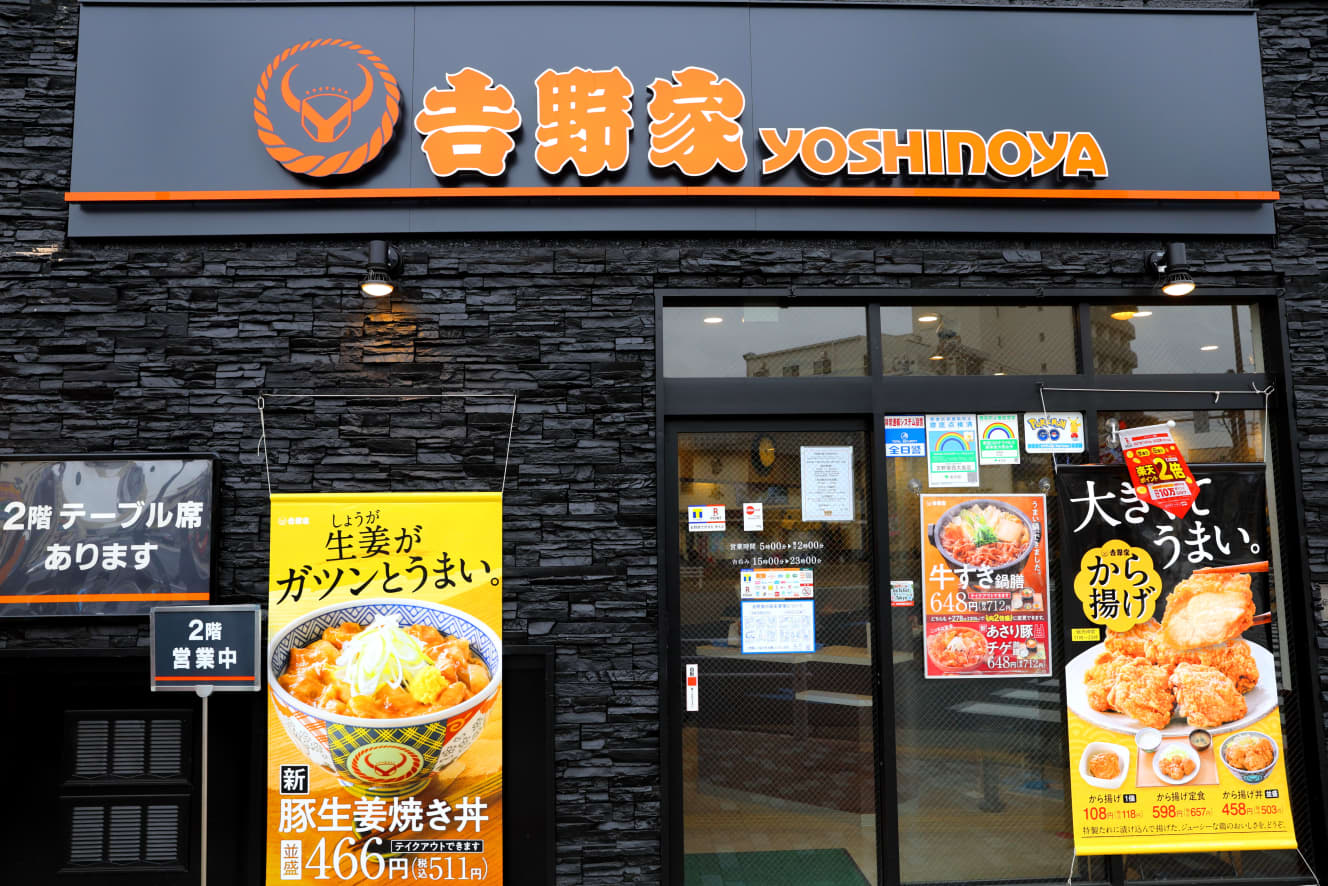Beef Bowl Chain Yoshinoya Which Has Been Under Fire for 5 Years, Stir Controversy Again For Foreign Discrimination of Applicant
The beef bowl chain Yoshinoya has come under fire again. A university student who applied for Yoshinoya’s company information session for new graduates was unilaterally denied participation on the grounds that he was a foreigner and that it would be difficult for him to obtain a work visa.

On May 3, a university student who had received a “refusal e-mail” from Yoshinoya, wrote to the company, “I am half Japanese, but I was born and raised in Japan.”
“
He uploaded an angry post on Twitter. The fact that Yoshinoya refused to allow him to attend the meeting after judging him to be a “foreigner” despite his Japanese citizenship caused widespread surprise, and the Internet was flooded with criticism that this constituted “discrimination against foreigners” by Yoshinoya.
Professor Jun Kitajima of the Graduate University of Social Design and Management, an expert on compliance, pointed out, “What is being criticized this time is the fact that Yoshinoya is discriminating against foreign nationals.”
Certainly, when hiring a foreign national, whether or not he or she has obtained a work visa (certification of status of residence such as “Engineer/Humanities/International Services”) can be a determining factor in the hiring process.
However, since Yoshinoya itself states on its recruitment page on its website that “Yoshinoya continues to actively promote foreign national employees for the purpose of organizational vitalization” under the keyword of “diversity,” it is a matter of cooperation and effort by the company to ensure that prospective employees obtain work visas, and to refuse their participation in a briefing session without question is a form of discrimination. To refuse to allow applicants to participate in the information session without question is to be criticized as a double standard that makes a mockery of the applicants.
Speaking of Yoshinoya, on April 16, at a marketing course for working adults at Waseda University, the managing director and general manager of the planning division called it a “strategy of shabu-zukuri for young girls” and said, “We turn young girls who come from the countryside and don’t know what is right or left into beef bowl addicts while they are still innocent and young. He has just caused a firestorm with his rant, “If I can get a man to buy me an expensive meal, I will never eat it.”
Yoshinoya Holdings, the parent company of Yoshinoya, apologized and dismissed the executive director on the same day, saying that his behavior was “extremely inappropriate in the course of his duties, which cannot be tolerated from the perspective of human rights and gender issues, and we deeply apologize for him,” but the scheduled “oyakodon” commercial presentation had to be canceled.
In March, a campaign in collaboration with the manga “Kai!” The campaign in collaboration with “Otokojuku” also came under fire.
When the manager of a sports facility in Kawagoe City tried to apply after fulfilling the requirements, the manager of Yoshinoya’s customer service office told him, “In light of social common sense, the name of the facility cannot be considered a real name in any way,” and “If you think this is an act of discrimination, you should consult with the Legal Affairs Bureau, which is in charge of human rights discrimination.” At this time, too, a screenshot of the e-mail sent by Yoshinoya was uploaded to Twitter, attracting much criticism.
In recent years, an increasing number of corporate scandals have been triggered by parties involved suddenly uploading screenshots of e-mails or LINE messages to Twitter and other social networking sites as hard evidence. In other words, “whistle-blowing” of compliance issues using SNS has a huge surprise effect, exposing a company’s corporate structure in the light of day.
Many companies in the restaurant industry tend to be unable to keep up with such new trends and risks. Yoshinoya HD is listed on the prime section of the Tokyo Stock Exchange and is required to have a high level of corporate governance. It is necessary to quickly rebuild compliance, including internal controls, public relations, and crisis management, and to rebuild consumer communication based on SNS culture,” said Professor Kitajima.
Yoshinoya has been hit by a series of scandals, but in its new medium-term management plan announced on April 13, the company announced its policy to develop its ramen business into the third pillar of its operations after beef bowls and udon noodles (Hanamaru). Will these “scandals” be an opportunity for Udon to regain its footing?
Photo: AFLO